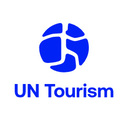UNWTO Europe Meeting discusses digitalization and new business models
Vilnius, the capital city of Lithuania, this week hosted representatives of 34 countries for the 60th Meeting of the UNWTO Commission for Europe. Discussions focused on major tourism trends and the priorities and agenda of the Organization for the region. The meeting was followed by a seminar on new business models.
"In 2015, there were 29 million more international tourists in Europe than the previous year, raising the total in the region to 609 million. At a time when economic recovery is still quite slow, tourism has been a major contributor to the European economy, generating 404 billion euros in exports," said UNWTO Secretary-General Taleb Rifai opening the meeting.
"Although the sector continues to progress, many challenges face us. These include a rapidly changing consumer market, the impact of technology, the emergence of new business models, manmade and natural crises, and the quest to make our sector more sustainable and more responsible," he added.
"Tourism in Lithuania has large growth potential and after this event we have even more stimulus to keep promoting our country and look for new possibilities to support tourism," said Evaldas Gustas, Minister of Economy of Lithuania and Vice-Chair of the UNWTO Commission for Europe.
Safe, secure and seamless travel, the role of tourism in the Sustainable Development Goals (SDGs) and the International Year of Sustainable Tourism for Development in 2017 were discussed at the Commission meeting.
The following seminar explored the impacts of new business models, and in particular of the so-called 'sharing economy', on the tourism sector, and how 'traditional' businesses are responding. Speakers included BeMyGuest, the Lithuanian Hotels and Restaurants Association, Room Mate Hotels, TripAdvisor, ReviewPro, HOTREC, NBTC Holland Marketing, the European Commission, the Tourism Chamber of the Republic of Lithuania and Airbnb. Participants agreed that the opportunities afforded by new business models should be embraced but that measures should be taken to ensure both a level playing field and the protection of consumers.
On the occasion of his visit to Lithuania, UNWTO Secretary-General Taleb Rifai met Lithuanian private sector representatives and the Chamber of Commerce. "Sustainable measures and other tourism policies should be applicable to all business models, so that all stakeholders across the value chain hold the same level of responsibility with regard to the sector," said Mr Rifai. "Only by working in cooperation and by building bridges will the tourism community be able to capitalize on the strong potential of the sector," he added.
In 2015, Europe remains the world's most visited region with 609 million international tourist arrivals (51% of the world's total). International tourism generated 404 billion euros in exports, 3% more than in 2014.
Additional information:
About UN Tourism
The World Tourism Organization (UN Tourism) is the United Nations agency responsible for the promotion of responsible, sustainable and universally accessible tourism.
As the leading international organization in the field of tourism, UN Tourism promotes tourism as a driver of economic growth, inclusive development and environmental sustainability and offers leadership and support to the sector in advancing knowledge and tourism policies worldwide.
Our Priorities
Mainstreaming tourism in the global agenda: Advocating the value of tourism as a driver of socio-economic growth and development, its inclusion as a priority in national and international policies and the need to create a level playing field for the sector to develop and prosper.
Promoting sustainable tourism development: Supporting sustainable tourism policies and practices: policies which make optimal use of environmental resources, respect the socio-cultural authenticity of host communities and provide socio-economic benefits for all.
Fostering knowledge, education and capacity building: Supporting countries to assess and address their needs in education and training, as well as providing networks for knowledge creation and exchange.
Improving tourism competitiveness: Improving UN Tourism Members' competitiveness through knowledge creation and exchange, human resources development and the promotion of excellence in areas such as policy planning, statistics and market trends, sustainable tourism development, marketing and promotion, product development and risk and crisis management.
Advancing tourism's contribution to poverty reduction and development: Maximizing the contribution of tourism to poverty reduction and achieving the SDGs by making tourism work as a tool for development and promoting the inclusion of tourism in the development agenda.
Building partnerships: Engaging with the private sector, regional and local tourism organizations, academia and research institutions, civil society and the UN system to build a more sustainable, responsible and competitive tourism sector.
Our Structure
Members: An intergovernmental organization, UN Tourism has 160 Member States, 6 Associate Members, 2 Observers and over 500 Affiliate Members.
Organs: The General Assembly is the supreme organ of the Organization. The Executive Council take all measures, in consultation with the Secretary-General, for the implementation of the decisions and recommendations of the General Assembly and reports to the Assembly.
Secretariat: UN Tourism headquarters are based in Madrid, Spain. The Secretariat is led by the Secretary-General and organized into departments covering issues such as sustainability, education, tourism trends and marketing, sustainable development, statistics and the Tourism Satellite Account (TSA), destination management, ethics and risk and crisis management. The Technical Cooperation and Silk Road Department carries out development projects in over 100 countries worldwide, while the Regional Departments for Africa, the Americas, Asia and the Pacific, Europe and the Middle East serve as the link between UN Tourism and its 160 Member States. The Affiliate Members Department represents UN Tourism's 500 plus Affiliate members.
Rut Gómez Sobrino
Principal Media Officer
(+34) 91 567 81 60
UN Tourism
